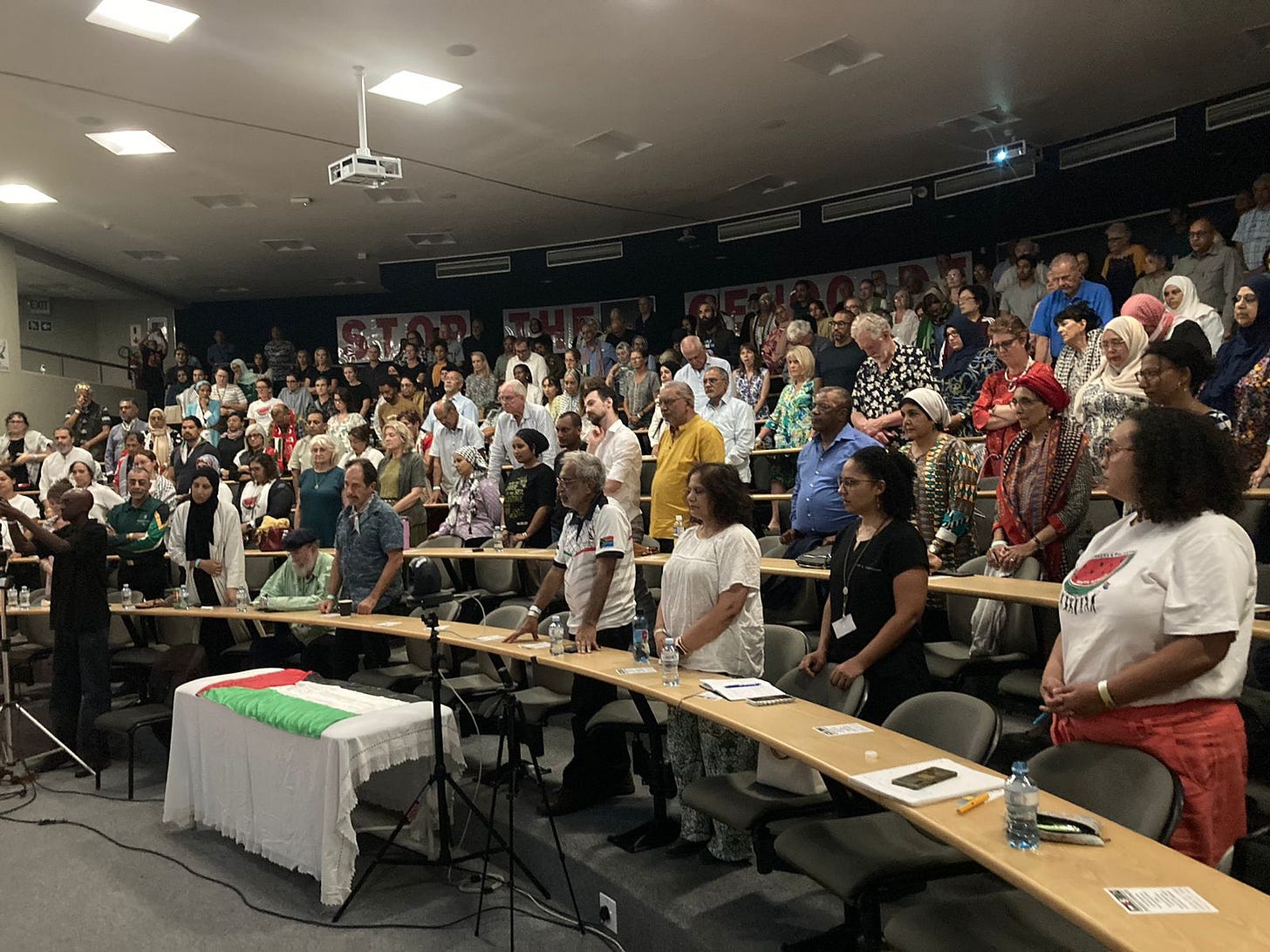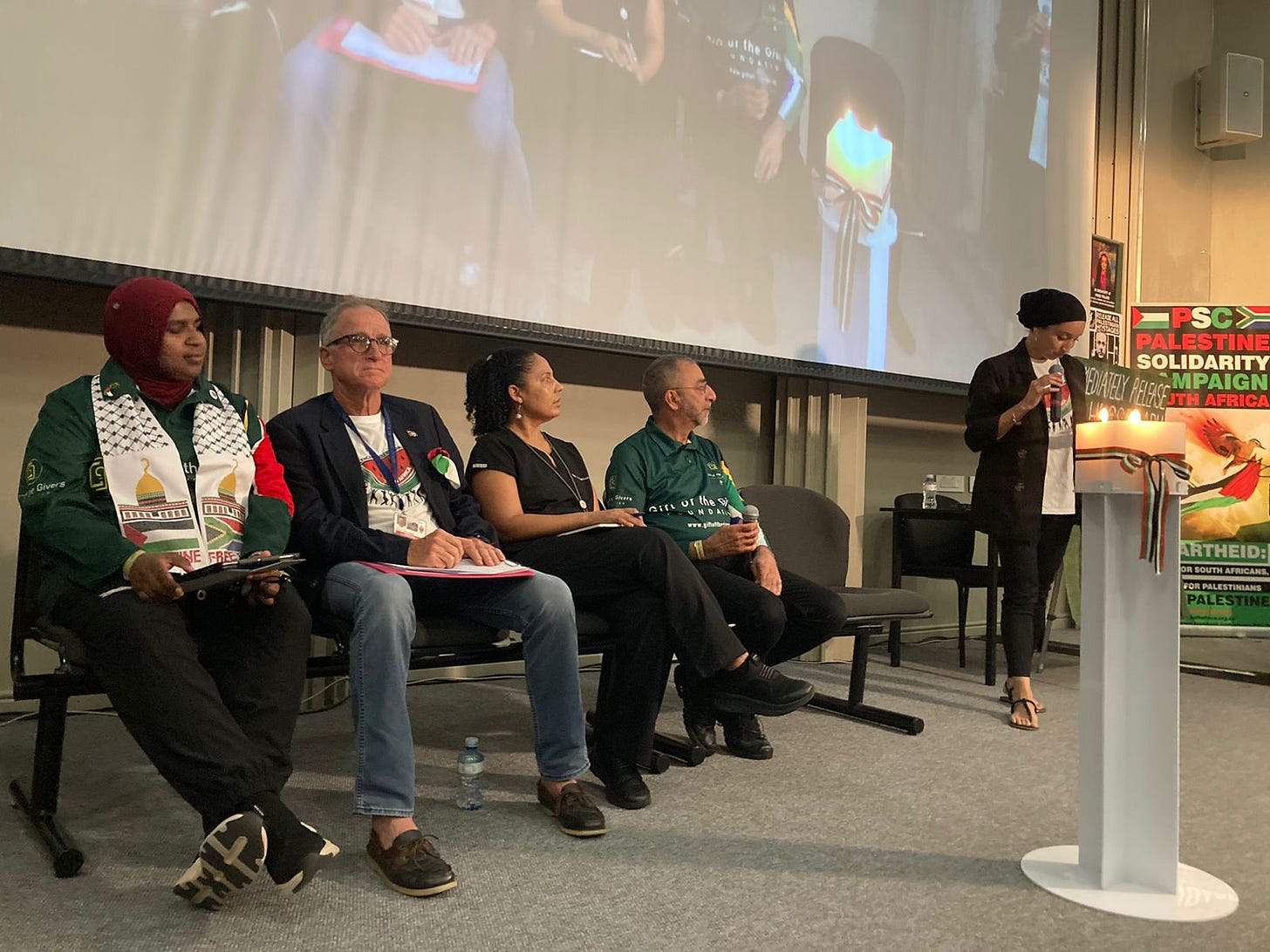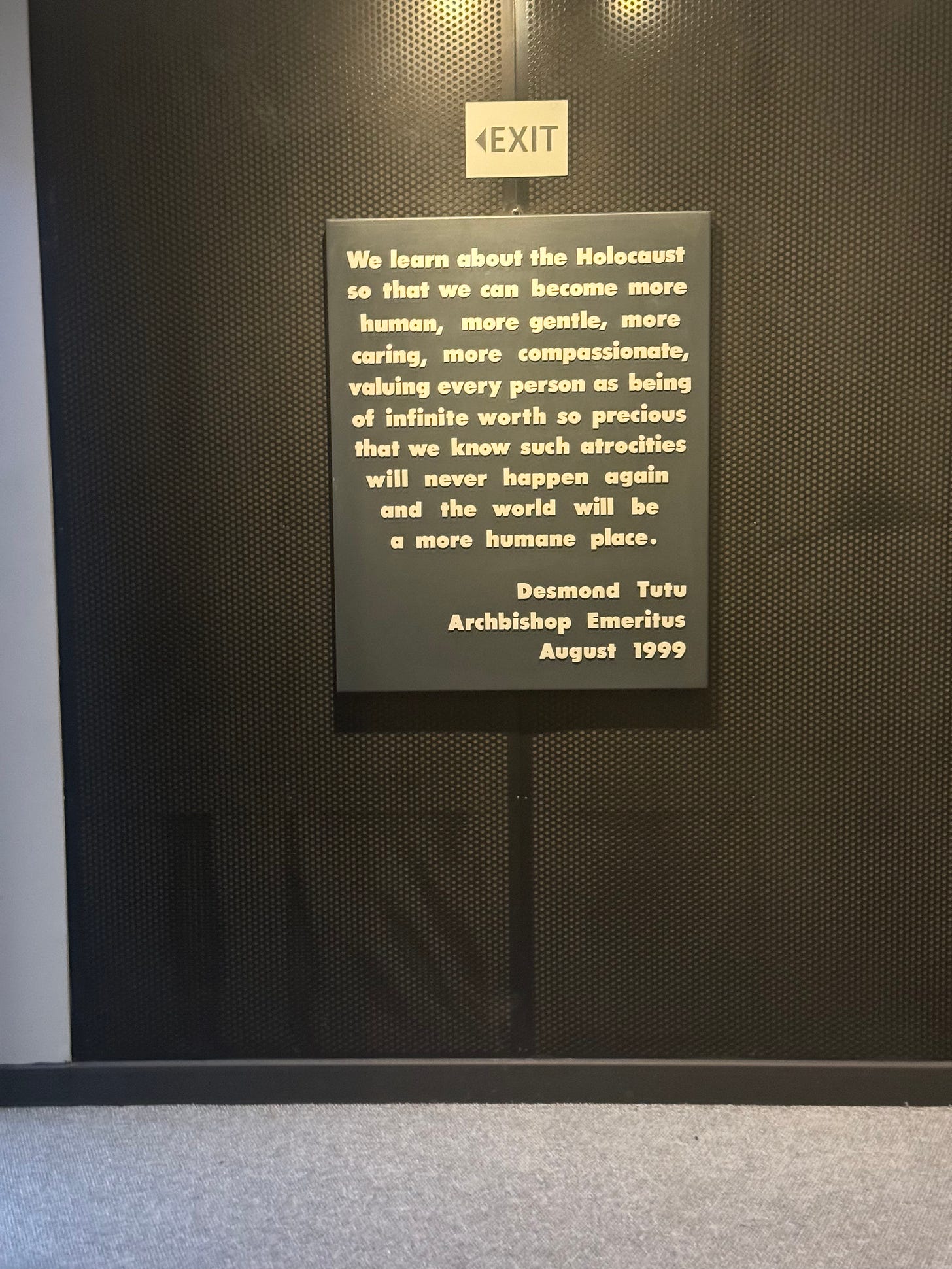When victims become oppressors
Gaza, the Holocaust, and the unlearned lessons of history
Cape Town, South Africa — How does the world allow this to happen? This question fuelled my rage on Monday evening as I watched an Al Jazeera 360 documentary titled Al-Shifa Hospital: The Crimes They Tried to Bury. The film painstakingly documents a two-week siege of the largest hospital in Gaza in March 2023.
The scenes from that documentary have haunted me ever since. The descriptions of depravity, torture, and inhumanity were unbearable to witness.
Gift of the Givers, along with other NGOs, hosted a public screening of the documentary at Groote Schuur Hospital.
On the morning of March 18, Israeli forces raided the Al-Shifa Hospital, which had become a refuge for over 7,000 patients and displaced Palestinians. During the raid and subsequent siege, more than 800 Palestinians were detained and interrogated, and over 170 were killed.
After the Israeli army withdrew, mass graves containing burnt human remains were discovered.
In the documentary, survivors recounted the horrors: mass executions, people shot execution-style, their bodies crushed by Israeli tanks and left for dogs to scavenge.
Each scene and description seemed more inhumane than the last.
Yet, this was just one example of Israeli Defence Force (IDF) brutality, which has escalated since the start of the massive incursion into Gaza. The toll has been catastrophic: approximately 50,000 dead, entire neighbourhoods flattened, and tens of thousands injured.
As someone who has followed and reported on the genocide in Gaza, including the case at the International Court of Justice, I have heard and witnessed countless horrific accounts of oppression.
However, the story of the siege on Al-Shifa hospital starkly highlighted how IDF soldiers seemed to view Palestinians not as human beings but as something else entirely.
The significance of the screening was that it occurred on International Holocaust Remembrance Day.
The proceedings began with a candle-lighting ceremony by representatives from SA Jews for Palestine in memory of the Holocaust victims, an effort to display deep-rooted humanism.
The Holocaust was the systematic, state-sponsored persecution and murder of six million Jews by the Nazi regime and its collaborators between 1933 and 1945.
As discussions unfolded at the screening, a question lingered: how could the descendants of Holocaust victims now enable such brutality against Palestinians?
Dr Imtiaz Sooliman later told me that the question misses a critical point. He insists that the people who suffered during the Holocaust are not the same as those who perpetrate the genocide against Palestinians today.
“The people who were the victims of the Holocaust are not the people who committed the crimes against people in other parts of the world. We need to create a distinction because in every community, you get good and bad. The bad elements in a community cause crises in another community. I feel bad that in the memory of the victims of the Holocaust, one would say, ‘these people are committing this tragedy on other people’,” Sooliman said.
Nevertheless, Zionism continues to use the memory of the Holocaust as a justification for its oppression of Palestinians. It is hard to ignore that.
Israeli historian Ilan Pappe argues that Israel has “weaponised the memory of the Holocaust”, diverting attention from its ongoing oppression of Palestinians for over 76 years.
Zionists bristle when comparisons are made between Nazi Germany and post-October 7, 2023, Gaza. They argue that Hamas’ October 7 raid on southern Israel, which killed 1,200 people, is akin to the Holocaust.
Pappe rejects this comparison as not only misleading but also sinister.
“This old-new myth led to the sinister comparison between the soldiers and citizens killed on October 7, 2023, and the six million Jews slaughtered by the Nazis. Such a comparison is a total abuse of the Holocaust memory and, more importantly, an attempt to demonise Palestinian anti-colonialist resistance, which began back in the 1920s – and will continue until Palestine is liberated,”Pappe writes.
I vividly recall visiting the Holocaust Museum in Berlin in October 2022 and being horrified by the images of torture chambers and endless concrete slabs symbolising the graves of Jewish victims murdered under Hitler’s regime. Few human beings could remain unmoved by that sight.
How do victims of such brutality justify similar atrocities against Palestinians? This question plagued me then and haunts me still.
On a whim, I visited the Holocaust and Genocide Museum in Cape Town the following morning after the screening.
As I walked in, the words of former president Nelson Mandela greeted me: “In the same way that the recollection of apartheid’s inhumanities is helping to heal and reconcile the South African people, so the memory of the Holocaust will strengthen the foundations upon which we are building a nation,” Mandela said when the centre opened in 1999.
The exhibition, a harrowing narrative of Nazi atrocities against European Jews, mirrored the brutalities Palestinians have suffered over the past 15 months.
Mass murders. Forced resettlement. Massacres. Burnt bodies. Death camps.
It felt all too familiar.
On my way out, a quote from Desmond Tutu struck me: “We learn about the Holocaust so that we can become more human, more gentle, more caring, more compassionate, valuing every person as being of infinite worth so precious that we know such atrocities will never happen again and the world will be a more humane place.”
Tutu said this in August 1999. Twenty-five years later, the world is not a more humane place. We have watched a genocide unfold on our screens and witnessed unfathomable impunity.
The burning sense of injustice I felt in November 2023, when I visited the Rwandan Genocide Museum in Kigali, returned to me. The genocide playbook, I realised, was eerily similar to the one playing out in Gaza.
In an essay I wrote for News24, I drew parallels and imagined visiting Gaza’s genocide museum in 2030. I wrote: “The world did not learn from history. We leave the Gaza genocide memorial confused and gutted. Surely, humans could not have been this evil. Where was humanity? Back in 2023, humanity was watching while global leaders aided and abetted impunity. We cannot wait until it’s too late to regret the atrocities in Gaza. It won’t matter then.”
I realised too, that in Rwanda, the genocide was perpretrators by people who were once oppressed, too.
Ugandan academic Mahmood Mamdani, in When Victims Become Killers, explains how the oppressed Hutus in Rwanda, after being oppressed by the colonial power Belgium, went on to oppress the Tutsis. This led to 30 years of hostility, ultimately culminating in the genocide of 1994, which claimed the lives of a million people.
American writer Ta-Nehisi Coates also grappled with this when he visited Israel’s official Holocaust memorial, Yad Vashem, and wrote about it in his new book The Message.
He writes: “Your oppression will not save you.” Reflecting on the phenomenon of people who were once oppressed, oppress others, he told Jon Stewart: “I know how you get here. I totally see how it happens.”
Coates expanded on this thought: “We would like to think that going through horrific experiences — be it Jim Crow here, the Holocaust, oppression — will somehow morally improve you. You might be. But it’s just as likely that you’ll conclude the world is a cold, hard place, and it’s a zero-sum game, where what matters is who has the guns and who doesn’t.”
This made me reflect deeply on the painful reality of when victims become oppressors.
I didn’t visit Yad Vashem when I went to Jerusalem in December. Still, I thought about Coates’ observation every time I witnessed the dehumanisation of Palestinians at the hands of IDF soldiers.
It is as if they see Palestinians as subhuman. It is impossible to ignore. This dehumanisation is the cornerstone of all genocides and oppression we know about. The similarities between the Holocaust, Rwanda, and South Africa’s apartheid are chilling.
In the South African context, the brutality inflicted by the English upon the Afrikaners during the Anglo-Boer War laid the foundation for apartheid. Here, too, an oppressed people became the oppressors of black South Africans.
This brings me to a moral crossroads. Do we accept that, as human beings, the oppressed may inevitably become the oppressors?
Mamdani writes: “The genocidal impulse to eliminate an enemy may indeed be as old as organised power.” Is that it? Should we simply accept this?
The human in me cannot look at mass graves in Gaza, Kigali, or Auschwitz and simply shrug my shoulders. Instead, a more constructive response is to internalise “never again” in the spirit of Tutu — to stop genocide wherever it happens.
It is happening now in Palestine, and that is why we have a moral duty to stop it. To paraphrase Dr Sooliman, Gaza symbolises victims of oppression worldwide.
To stand up now is to tell the future you resisted when it was easier not to.
The Debrief Network is an independent media initiative founded by Qaanitah Hunter.
Help us get the word out by sharing this piece.








